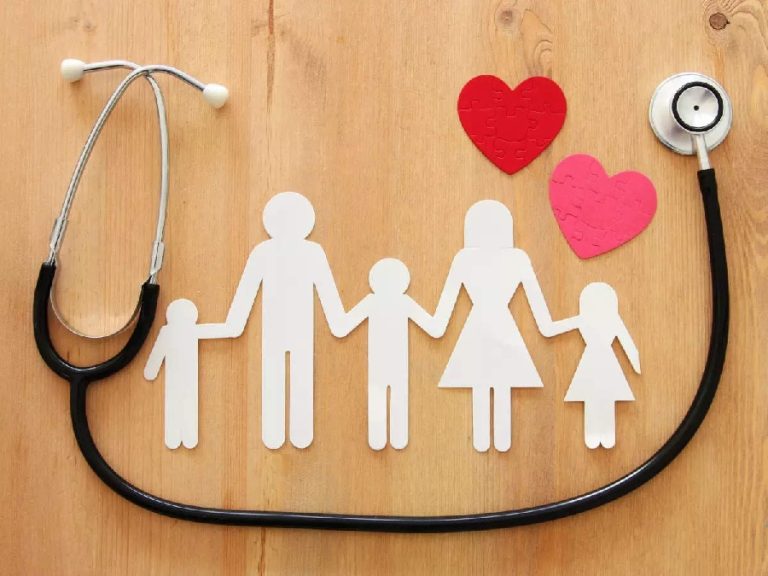
11 Easy Ways to Lower Blood Sugar Levels Naturally
If you’re at risk of developing diabetes or already have it, there are ways you can reduce your blood sugar levels.
Blood sugar, also known as glucose, is the principal sugar in your blood and is also your body’s primary energy source. The blood sugar levels fluctuate throughout the day. Normal fasting blood sugar (before you take a drink or eat early in the day) is not more than 100 milligrams per deciliter.
Any time during the day, blood sugars, regardless of the time of day or what the last meal was, will never exceed 200 mg/dl. The blood sugars that exceed these levels may indicate the presence of prediabetes, also known as Type 1 and Type 2 diabetes. The condition of diabetes is that the body is unable to create enough insulin or use insulin in a way that is appropriate to regulate blood sugars back to normal levels.
What do you feel like when blood sugar levels are excessively high?
If you’re in danger of developing diabetes mellitus or already have it, you must be aware of your body’s symptoms of elevated blood sugar. The following signs could indicate that the blood sugar levels are above average, a condition known as hyperglycemia.
- Headache
- Tiredness
- Blurred vision
- Hunger
- Trouble in concentrating or thinking
It is essential to keep track of your blood sugar levels because elevated blood sugar levels can result in a serious medical emergency that could lead to a coma and other severe conditions. Over time, high blood sugar levels may cause long-term consequences, including wound healing issues, damage to kidneys, stroke, heart disease and vision issues.
Be aware that “in many cases, low blood sugar (hypoglycemia) follows an episode of high blood sugar,” states Diabetologist in Mumbai.
People with prediabetes might be prescribed medications to check their blood sugar levels. There are methods to reduce blood sugar levels by yourself. Maintaining your blood sugar levels at a healthy level reduces your chance of developing complications from diabetes. People who have Type 1 diabetes will need insulin, regardless of their healthy routines.
11 natural methods to lower blood sugar
If you’re experiencing signs of high blood sugar or have been diagnosed with diabetes, you could be wondering how to lower blood sugar without drugs. While natural remedies can improve blood sugar levels, those who have diabetes shouldn’t stop using their medications or alter their dosage without consulting their doctor. In addition to medications, you may also consider these natural solutions to reduce your blood sugar levels.
- Be aware of your intake of carbohydrates
How you eat and what you consume is an important aspect of keeping your blood sugar level within the healthy range. Selecting foods that help you to limit blood sugar levels to a minimum can assist in avoiding an eventual diagnosis of diabetes or managing your diabetes. Specific diets simplify the scope of the food plan and recommend that you cut down on carbohydrates or concentrate on foods that are low in carbs.
- Choose foods with an average to low GI score
Find foods with moderate to low glycemic index (GI) scores. The body absorbs these food items slowly and can reduce blood sugar spikes. Certain people combine high and low GI foods to control their blood sugar levels. Foods with a low glycemic index have numerous health benefits in addition to their impact on blood sugar. Therefore eating a diet rich in proteins, fatty acids, and fiber can benefit all your family members and not just those striving to control their glycemic levels.
- Increase your intake of fiber
Fiber is an essential ingredient in foods that reduce blood sugar levels. Therefore, increasing the amount of soluble fiber you consume can help lower blood sugar levels. Concentrate on foods that stabilize blood sugar, including unrefined carbohydrates such as whole grain pasta or bread, sweet potatoes, legumes and lentils, nuts and non-starchy vegetables.
Another benefit of high-fiber foods is that they can make you feel fuller. It can also help you avoid overeating or having cravings for foods that could negatively impact your blood sugar level. Men are advised to aim for 30 to 38 grams per day, while women should aim for 21 to 25 grams daily, as per iCareHeal, an all-in-one app for doctors.
- Follow a strict eating plan
Doctors warns against “skipping meals frequently” to avoid the rollercoaster of blood sugar fluctuations and spikes. It is best to spread your meals out over the day instead of having a big meal at breakfast or dinner, which can help you manage blood sugar. A consistent diet from morning to night is the best way to control blood sugar levels.
- Don’t count on vitamins or supplements
There’s no easy way to keep good blood sugar levels. Supplements or vitamins are not enough to guarantee adequate blood sugar levels. In addition, they could interfere with other medicines.
- Drink more water
It’s probably not surprising that water is the best drink for keeping blood sugar levels in the correct range. High levels of blood sugar can lead to dehydration, which could be deadly if not addressed. Drinking plenty of water, mainly when blood sugar levels are high, can help eliminate excess glucose in your urine.
Many other beverages, such as unsweetened tea, will help lower your blood sugar naturally. Hibiscus tea helps to lower blood sugar level and reduce cholesterol, which keeps your heart healthy and prevents heart conditions.
Drinks that should be avoided include:
- Alcohol
- Fruit juice
- Soda
- Sports drinks
- Tea and coffee with high sugar
- Get regular exercise
Even exercises like walking can help in controlling blood sugar levels. The American Diabetes Association (ADA) states that one of the most effective ways to treat diabetes is to do at least 150 minutes of moderate exercise each week. Some good options include yoga, stretching or a walk across the street. Exercise boosts insulin sensitivity, reduces blood sugar levels for up to 24 hours, and assists in losing weight.
- Control your weight
Maintaining an ideal weight for your body is essential for managing blood sugar. Weight gain can cause insulin resistance, which increases the amount of insulin your body produces. Weight loss can have the opposite impact. Just dropping 7 percent of body weight could help to improve your insulin sensitivity and help to maintain normal glucose levels.
- Maintain regular checkups
Consult your physician for regular check-ups. Examine your blood sugar, cholesterol, and blood pressure levels. This is particularly important in case of any family history or high-risk factors for diabetes.
- Reduce stress
To ensure proper blood sugar, being less stressed will make implementing and maintaining healthy lifestyle changes easier. Also, checking your blood sugar levels will improve your mood since low and high blood sugar indicators can trigger mood swings. If your mood is shaky because of mental or physical illness, talk to your doctor for help and assistance.
- Sleep more
Be determined to keep the same schedule of sleep. Cortisol is the stress hormone that gets elevated when you are not sleeping. A good night’s sleep can help you feel more relaxed throughout the day, and it will ensure that you are more productive in preparing healthy meals and workout and assist in keeping your blood sugar level stable. Visit Walk In Clinic Milton and consult your physician for regular check-ups. Examine your blood sugar, cholesterol, and blood pressure levels. This is particularly important in case of any family history or high-risk factors for diabetes.
This infographic was created by Senior Healthcare Direct, medicare advantage programs



















